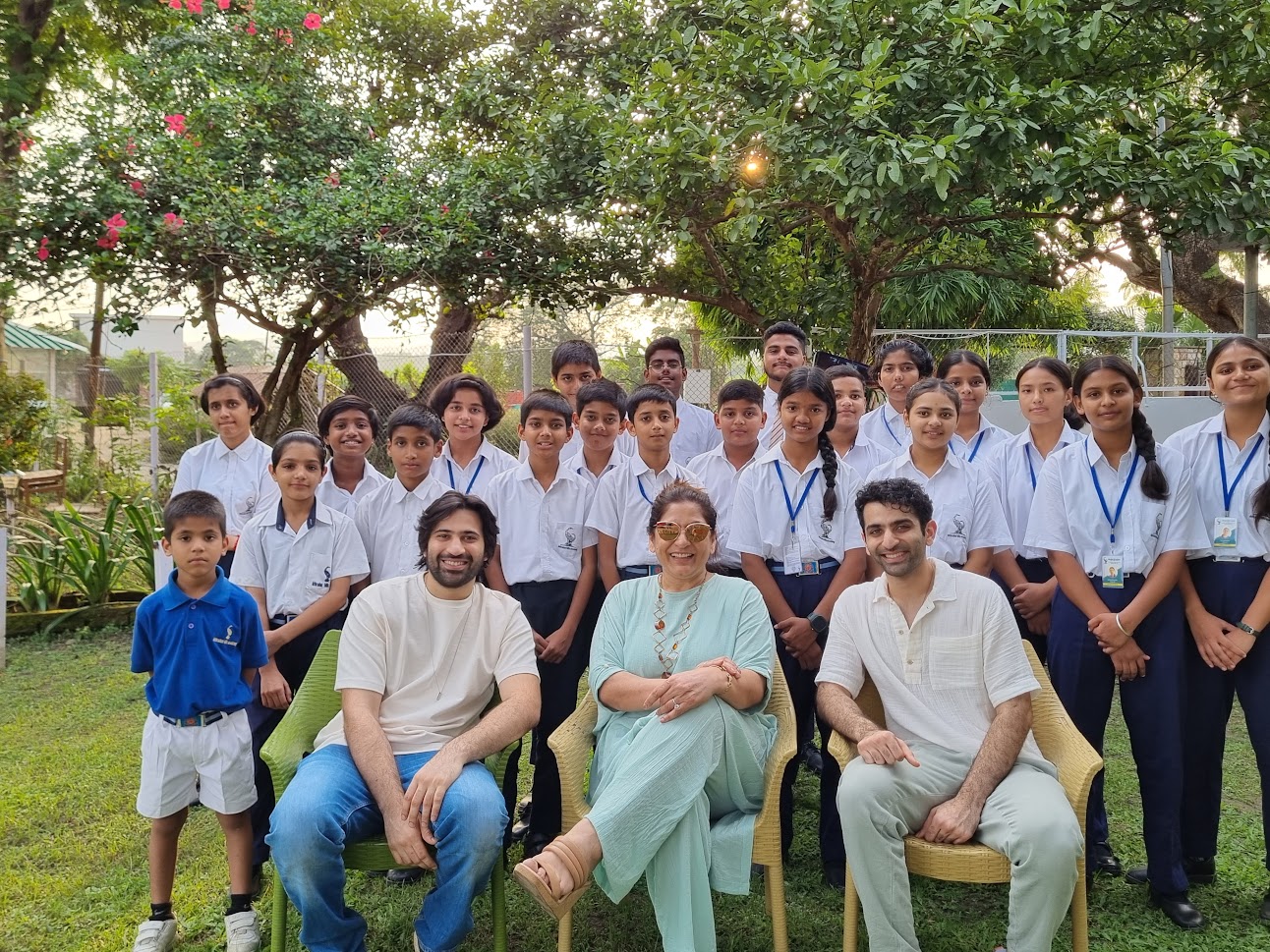THE TRUE PURPOSE OF EDUCATION: REFLECTING ON THE ROLE OF SCHOOLS
Understanding the Foundations and Evolving Expectations of Education Exploring a simple yet profound question: What is the real purpose of a school?

In this piece, I want to explore a simple yet profound question: What is the real purpose of a school? While there may not be a single definitive answer, it's clear that the vision and objectives of schools can vary—and rightly so. Schools are not meant to follow a one-size-fits-all system or philosophy. Instead, we should reflect on the broader question of why schools were established in the first place. What was the original purpose behind founding schools? As a society, both in India and globally, our perspective on education has evolved significantly. Today, the information available to students at the click of a button is something we couldn’t have imagined decades ago. A seventh-grade student can now explore the depths of astronomy through Podcasts, YouTube videos, and tutorials—resources that were once difficult to access. Networking with like-minded individuals across the globe is now possible with a simple internet connection, a computer, and basic proficiency in English.

While today’s students are undoubtedly more tech-savvy and have access to a wealth of information, I believe that this was not the primary reason schools were established. In my view, schools were meant to prepare students for their future journeys while also developing them into good human beings who can serve their communities and countries. After all, an educated student should have a sense of purpose in life. However, in recent years, we have seen a troubling rise in stress, anxiety, and even suicides among students. Globally, there seems to be more hatred and mistrust among communities than ever before. This issue is not confined to India alone. Consider the gun violence in America, where young adults, driven to the breaking point, resort to tragic acts of violence in universities and schools. These ongoing crises prompted me to write this article, urging educators and like-minded individuals to reflect on where we may be failing to instill essential values in our children.
The May-June period is one of the most stressful times in the Indian education system, with board exam results for Class X and XII looming large. I often wonder why we don’t teach our students the importance of patience—arguably one of the most rewarding skills one can possess. How often do we see children giving up, whether on a subject at school, a friendship, or a job? In my view, schools were meant to teach children to lead lives that go beyond mere assessment scores or degrees.
In the 70s and 80s, how many schools had counseling departments to support students? Very few. Today, however, most issues in schools seem to be behavioral in nature, which begs the question: Have we, as institutions, failed to evolve with the times?
I remain optimistic, believing that there are dedicated individuals worldwide striving to bring about much-needed changes in our education system. We need to start asking the right questions, and this process involves not just schools and educational institutions but society at large. We must move beyond a mindset that only values marks and achievements, and instead, prioritize happiness, patience, living in the moment, kindness, and empathy.
I was particularly inspired when I learned about a school in Goa that grades students on how they treat animals. This idea resonated deeply with me and led Sakshi, our then Head of Operations, to suggest starting each meal in our Central Dining Hall by offering food to the birds. Even today, more than three years later, this tradition continues at Dehradun Hills Academy. This example highlights how a dedicated and visionary individual can bring about small but impactful changes.
Similarly, Sakshi was instrumental in introducing “God’s Hour”; a 15-20 minute daily session where we voluntarily come together to express gratitude for all the blessings in our lives. These simple practices remind us that the true purpose of education extends beyond academics; it’s about nurturing well-rounded individuals who are compassionate, patient, and grateful.
Read More On >>> How Pastoral Care forms a part of curriculum at Dehradun Hills Academy
In speaking with some of our educators, I was deeply inspired by their views on the true purpose of education: "To nurture empathy, develop critical thinking, foster collaboration, and empower students to create a compassionate, sustainable world for all”. While this vision is exactly what education should aim for, many schools today remain stuck in rigid, conventional approaches. Instead of focusing on what’s truly needed in today's rapidly evolving world, they continue to emphasize outdated practices that no longer serve the students’ best interests. It’s time to shift our focus to meet the real needs of the hour.
For instance, while bullying is a global issue faced by schools and universities, our approach to addressing it often falls short. We tend to focus on superficial measures, like reminding students to be kind or, responsible in completing their assignments, rather than teaching them the deeper values of empathy and character-building that can prevent such behaviors in the first place.
The world needs more humane and compassionate leaders who understand that their everyday choices impact others and the entire ecosystem. Similarly, stress and anxiety, as mentioned earlier, are pressing issues for today’s generation. Children are burdened with overwhelming schedules, excessive homework, and numerous activities, leaving them little time for self-exploration and connection with the real world. Few students have the opportunity to follow their passions and contribute in ways that are truly meaningful and impactful—these are the real accomplishments.
We must all stand up for the sake of our children because their future is at stake. The objective is to adapt to changing times, find solutions for the current generation, and allow them to become part of the solution. I believe we should focus on educating our children to be changemakers—"solutionaries"—who will grow into thoughtful, responsible individuals. This approach will benefit not only our nation but the future of our world as well.
“Love and compassion are necessities, not luxuries. Without them, humanity cannot survive.” – Dalai Lama.
I truly believe that we must follow in the footsteps of His Holiness Dalai Lama and instill in our students the values of love and compassion. By guiding them to embrace these virtues, we are not only shaping better individuals but also contributing to a more humane and compassionate world. At Dehradun Hills Academy, we aim to nurture these qualities, for they are essential to the survival and betterment of humanity.
In conclusion, while the world has changed, and the way we access information has evolved, the core purpose of education remains the same: to prepare students not just for exams or careers but for life itself. Schools must continue to evolve, but they should never lose sight of this fundamental goal.
Also Read >>> A Day underwater: Our Glass Aquarium adventure.










